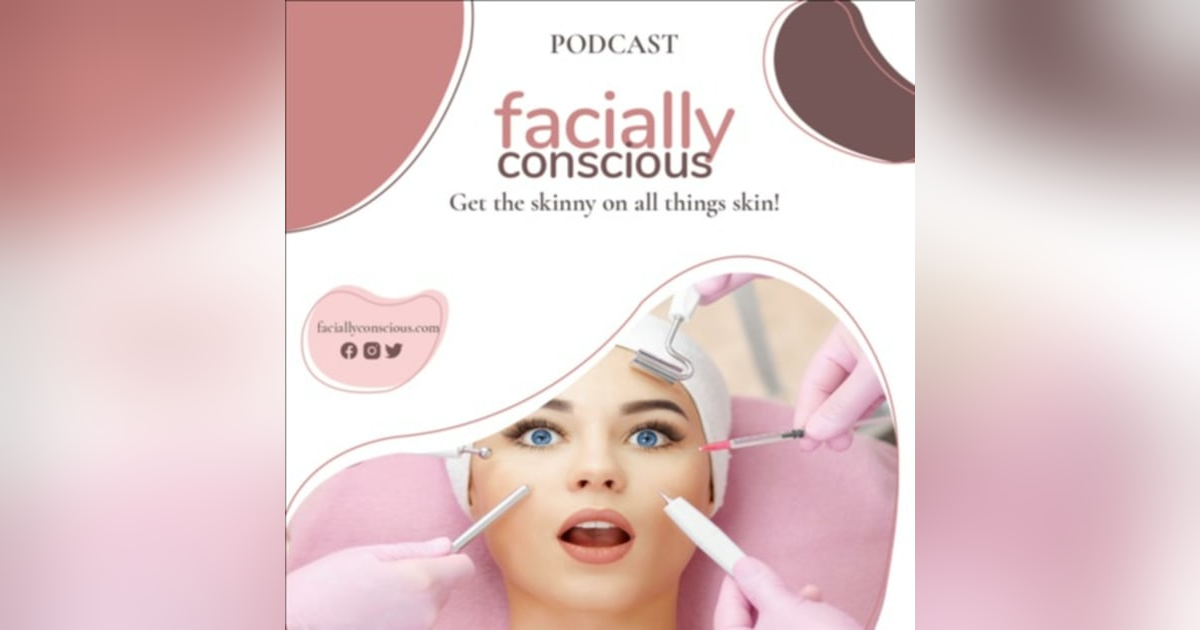Pregnancy Skincare: What's Safe, What's Not, and What Might Surprise You

Expert insights from OBGYN Dr. Michele Hakakha on navigating skincare during pregnancy
When you're expecting, the world of skincare suddenly feels like a minefield of uncertainty. Can you use that salicylic acid cleanser? What about your favorite retinol serum? And why is everyone giving you different advice about what's safe during pregnancy? In a recent episode of the Facially Conscious Podcast, Blooming Beauty: Nurturing Your Skin During Pregnancy with Dr. Michele Hakakha, hosts Trina Renea, Dr. Vicki Rapaport, Rebecca Gadberry, and Julie Falls sat down with board-certified OBGYN Dr. Michele Hakakha to separate fact from fiction when it comes to pregnancy skincare.
The Truth About Skin Changes During Pregnancy
Forget about the mythical "pregnancy glow" everyone talks about. While some lucky women do experience radiant skin and shiny hair during pregnancy, the reality for many is quite different. Dr. Hakakha explains that pregnancy causes increased blood vessel activity, more oil gland production, and significant changes in melanin, which can lead to acne breakouts, melasma, linea nigra (a dark line down the belly), and darkening of moles.
These changes occur due to the sharp increase in hormone production during pregnancy. The higher estrogen levels don't just influence your mood and energy—they also significantly change how your skin behaves. Understanding this explains why your usual skincare routine might suddenly stop working or why you're experiencing skin issues you've never had before.
The Moratorium on Cosmetic Treatments
If you're accustomed to regular Botox appointments, dermal fillers, or laser treatments, pregnancy means putting all injectable and laser procedures on hold. Dr. Hakakha makes this clear: "You cannot have any injections, you can't have Botox, you can't have fillers, nothing that we don't have testing on."
The reason isn't necessarily that these treatments are definitely harmful, but rather that we simply lack safety data. As Dr. Hakakha points out, "We cannot take 100 women and say, let's see if this affects your baby." The absence of studies means that any injectable treatment carries unknown risks that aren't worth taking during pregnancy.
Laser treatments pose specific risks during pregnancy. The increased melanin makes the skin highly sensitive, and laser procedures can sometimes cause hyperpigmentation instead of helping it. Even laser companies consider pregnancy a contraindication, preferring to avoid liability if complications arise.
The Ingredient Surprise That Transforms Everything
Perhaps the most surprising revelation from this episode was Dr. Hakakha's view on salicylic acid. For years, skincare experts have listed salicylic acid alongside retinoids as off-limits for pregnant women, citing its link to aspirin. However, Dr. Hakakha questions this traditional view.
We give people baby aspirin, 81 milligrams every day for a lot of new things now," she explains. Women over 35, those with IVF pregnancies, and anyone at risk for preeclampsia or growth restriction routinely take daily baby aspirin throughout pregnancy. Based on this medical practice, she argues that the use of topical salicylic acid is completely safe.
This discovery offers many skincare options for pregnant women with acne. Paired with benzoyl peroxide, which Dr. Hakakha also approves for use during pregnancy, women now have effective ways to control breakouts in this hormonally changing time.
The Ultimate Ingredient Guide
During a rapid-fire segment, Dr. Hakakha provided clear guidance on common skincare ingredients. The approved list includes vitamin C, glycolic acid, hyaluronic acid, topical peptides, sunscreen, salicylic acid, and benzoyl peroxide. The forbidden list remains firm on retinol and Retin-A, with Dr. Hakakha emphasizing "never" for both.
Vitamin A derivatives require special attention because they are well-known teratogens—substances capable of causing birth defects. Dr. Hakakha mentions that vitamin A has been removed from most prenatal vitamins because women were getting too much, and a balanced diet naturally provides sufficient amounts.
For sunscreen, both Dr. Hakakha and the panel recommend using physical blockers like titanium dioxide and zinc oxide instead of chemical sunscreens, which may contain potentially problematic ingredients like octinoxate and benzophenone compounds.
Managing Common Pregnancy Skin Concerns
Melasma and Hyperpigmentation: The "pregnancy mask" affects many women, but aggressive treatment should be delayed until after pregnancy and breastfeeding. During pregnancy, prioritize prevention by applying diligent sunscreen and gentle, brightening agents, such as vitamin C.
Acne: With salicylic acid and benzoyl peroxide now in the safe category, pregnant women have more options than they previously thought. Dr. Hakakha recommends good cleansing practices, avoiding sleeping in products, and using these topical treatments as needed.
Stretch Marks: While genetics largely determines who develops stretch marks, regular moisturizing might help reduce their appearance. Dr. Hakakha recommends mixing oils with moisturizers for longer-lasting hydration, but she is realistic about prevention: "If you're going to get them, you're often going to get them."
Spider Veins: These estrogen-related vascular changes often improve after delivery, although varicose veins may need professional treatment. The good news is that many of the spider veins that appear during pregnancy tend to fade naturally after childbirth.
When to Seek Professional Help
Not all skin changes during pregnancy are harmless. Dr. Hakakha shared a concerning case of a patient who developed melanoma during pregnancy, highlighting that changing or growing moles should always be checked by a dermatologist, regardless of pregnancy status. The usual guidelines for suspicious moles remain the same during pregnancy, and removal procedures with local anesthesia are completely safe.
Skin tags are another common development during pregnancy, usually appearing around the neck and bra line. While these often go away on their own after delivery, they can be safely removed during pregnancy if they are bothersome.
The Key Point for Skincare Professionals
This episode of Facially Conscious offers important updates on pregnancy skincare advice that many professionals might not know. The approval of salicylic acid during pregnancy marks a major change in guidelines that could help many women better manage skin issues during pregnancy.
For estheticians and other skincare professionals, this information emphasizes the importance of staying current with medical recommendations and maintaining open communication with clients' healthcare providers. When unsure, the safest approach is to consult the patient's OBGYN; however, having accurate, up-to-date information helps everyone make more informed decisions.
The main message is clear: pregnancy doesn't mean giving up all skincare treatments, but it does call for careful ingredient choices and realistic expectations about what can and should be addressed during this special time.
Listen to the full episode "Blooming Beauty: Nurturing Your Skin During Pregnancy with Dr. Michele Hakakha" on the Facially Conscious Podcast for more detailed insights and expert advice.
Join our Substack
To read more from Trina Reneá, join her on Substack https://trinarenea.substack.com/.









